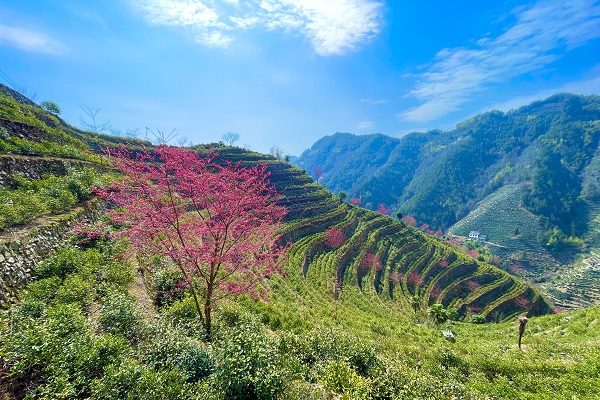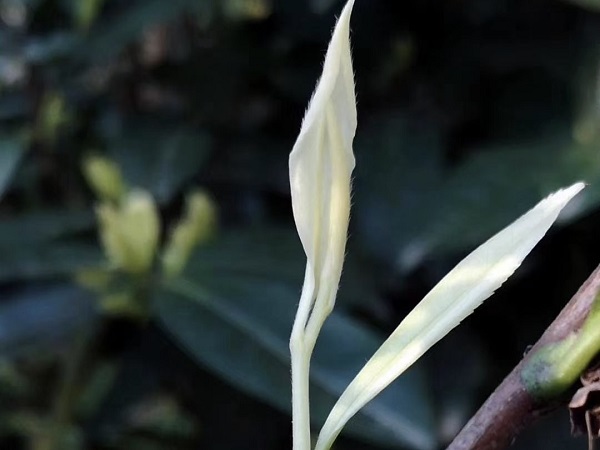The village of Wugongling in Shexian county in Huangshan city – located in East China's Anhui province – has undergone a remarkable transformation over the past decades from barren hills to a thriving ecological and environmental paradise, with a robust economy to boot.
With the primary focus on tea cultivation, the village has revitalized its rural commerce and also become a popular tourist destination.

A glorious view of the terraced tea gardens in Wugongling village in Huangshan city. [Photo provided to chinadaily.com.cn]
The villagers of Wugongling, motivated by their strong spirit of self-reliance, have taken on the challenge of transforming the hilly terrain into a thousand-mu (66.67 hectares) terraced tea plantation.
Their efforts have well and truly paid off. Today, this man-made wonder stands as the largest example of its kind, making it a unique terraced tea garden in the country.
Through projects such as ecological restoration, Wugongling has regained its natural beauty, resulting in increased tourism and economic opportunities for the local community.

A pristine example of the white tea that grows in Wugongling village. [Photo provided to chinadaily.com.cn]
It has also capitalized on its tea industry, particularly the highly sought-after white tea, which has boosted the local economy with tea farmers earning much more income.
In addition, Wugongling has embraced its rich cultural heritage. The village has established a village museum, showcasing its very special history and attracting visitors from across the country.
The remarkable transformation of Wugongling is widely said to serve as an inspiration for other rural communities in China and worldwide.
With its commitment to ecological conservation, cultivation of high-quality tea and promotion of local culture, Wugongling is often held up as a shining example of how rural areas can thrive and prosper in the face of challenges.

